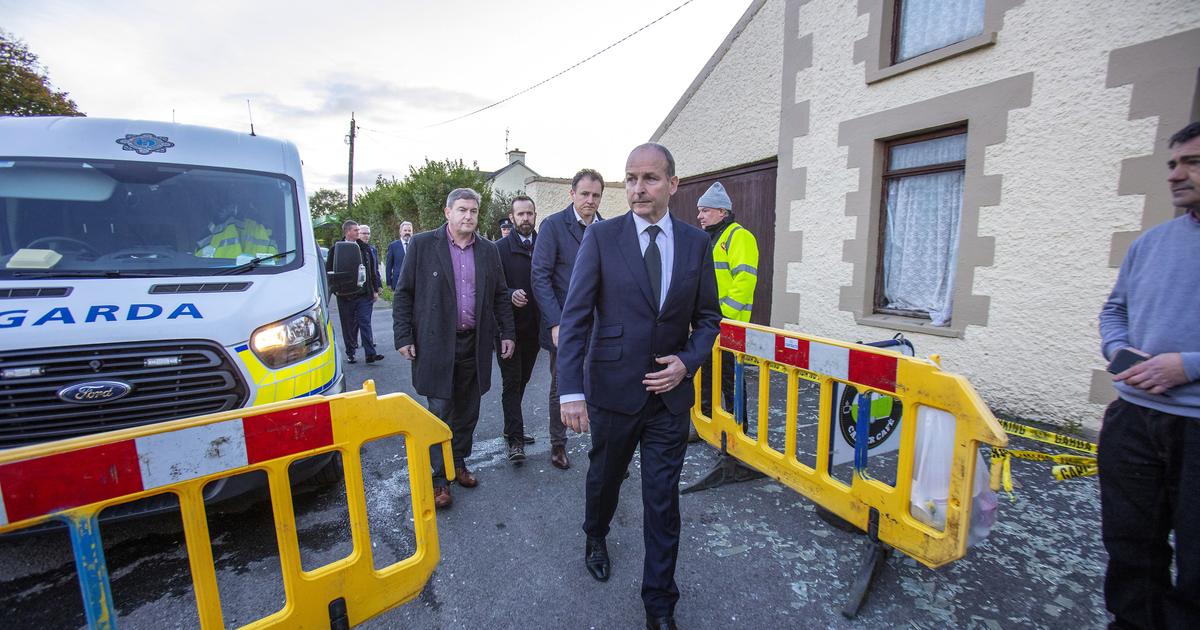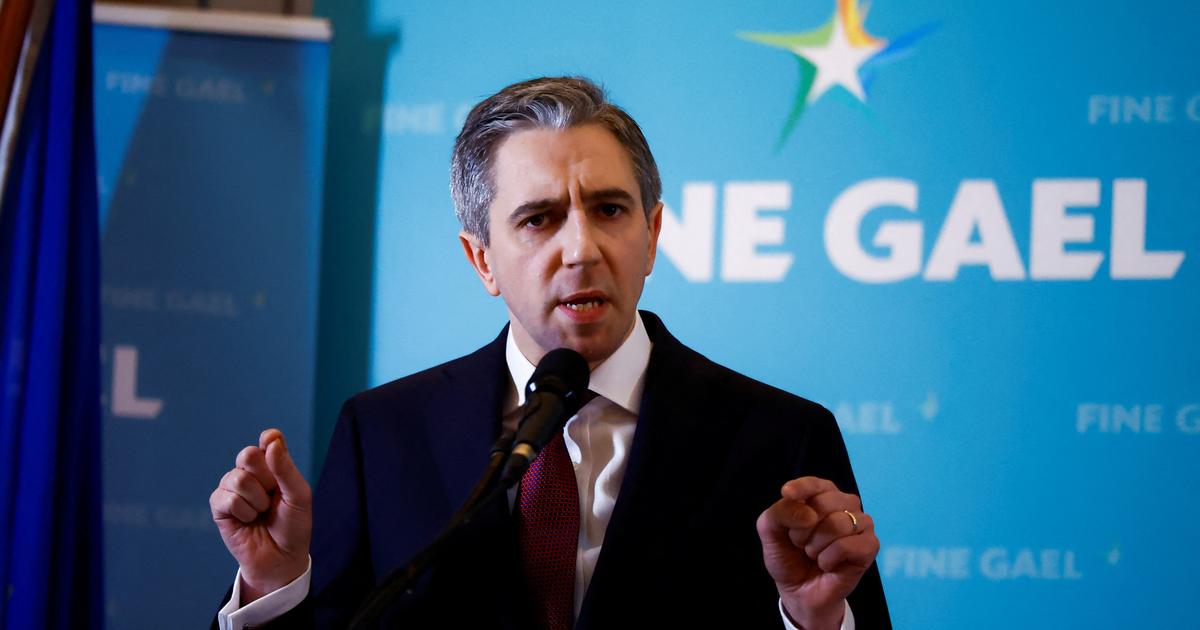Northern Ireland seems to reconnect with its old demons.
Since March 29, after the first scuffles in the city of Londonderry, the nights of violence follow one after the other.
Through their respective Prime Ministers, Boris Johnson and Micheal Martin, London and Dublin condemned Thursday, April 8 the clashes that have opposed rioters and police for more than a week.
These new tensions raise fears of a painful step backwards, as the British province saw its inhabitants torn apart for 30 years (1968-1998).
If the Good Friday Agreements - which will celebrate their 23rd birthday this Saturday - have put an end to the "Troubles" and established a lasting peace, Brexit has awakened painful wounds in Northern Ireland between Unionists and Republicans.
What happened ?
March 29 marked the start of a resurgence of violence that had not been observed for several years in Northern Ireland.
That day, while the police are deployed to disperse a crowd of around forty people - gatherings in public space are limited to ten people from two separate homes due to the coronavirus - a vehicle from Londonderry police are targeted by a Molotov cocktail.
A few days later, on April 2, clashes broke out during a demonstration which took place in a loyalist district (in favor of union with the United Kingdom) of Belfast.
According to media reports, of the 200 demonstrators present - mainly young people - seven were arrested by the police.
Eight law enforcement officers are injured.
It is the start of a high tension Easter weekend.
The following night, the police were again targeted by the demonstrators.
New tensions erupted on Thursday evening, this time in a nationalist district (for a unified Ireland) of the northern Irish capital.
The police tried to stop the hundreds of Republican demonstrators who were heading towards the Unionists.
Since the start of the riots, more than fifty members of the security forces have been injured.
The demonstrators throw all kinds of projectiles - stones, bricks, Molotov cocktails - while the police respond with water cannons.
Belfast rioting 'was worst seen in Northern Ireland in years': https://t.co/p7gJvNN5km pic.twitter.com/4xG9YKYxgU
- BBC News NI (@BBCNewsNI) April 8, 2021
How are London and Dublin reacting?
On the evening of Wednesday April 7, British Prime Minister Boris Johnson reacted for the first time on Twitter.
He says he is "deeply worried" by what is taking place in Northern Ireland, referring to the attacks which target in particular the police.
“The way to resolve differences is through dialogue and not through violence or crime,” he added.
I am deeply concerned by the scenes of violence in Northern Ireland, especially attacks on PSNI who are protecting the public and businesses, attacks on a bus driver and the assault of a journalist.
The way to resolve differences is through dialogue, not violence or criminality.
- Boris Johnson (@BorisJohnson) April 7, 2021
Thursday, the latter and his Irish counterpart, Michael Martin, both called for calm qualifying as "unacceptable" the clashes that have hit Northern Ireland for ten days.
The local government met in an emergency on the same day.
Unionists and Republicans unitedly condemned the "completely unacceptable and unjustifiable" violence.
They say they are "gravely concerned" by the tensions in the province.
“Our political positions diverge on many points, but we are all united in our support for law and order,” reads this joint statement.
The Executive has issued a statement condemning the violence over recent days.
Ministers have called for calm to be restored to our streets, and an end to violent protests.
More here⬇️ https://t.co/eccHJD7k0X
- NI Executive (@niexecutive) April 8, 2021
Morning essentials newsletter
A tour of the news to start the day
Subscribe to the newsletterAll newsletters
"We are worried by the violence in Northern Ireland" reacted for its part the White House through its spokesperson, Jen Psaki.
Why these troubles?
These tensions have their origin in Brexit, the divorce of the United Kingdom from the European Union, which became effective on December 31, 2020 at midnight.
The Unionists consider themselves "betrayed" by the establishment of a protocol, concluded between London and Brussels after intense negotiations between the two parties, which established a border in the Irish Sea.
British territory is in a way "separate" from the rest of the country.
It remains subject to rules in force in the EU such as the control of goods entering the British province.
London and Brussels have sought at all costs to avoid the return of the physical land border between Northern Ireland and the Republic of Ireland, in order to preserve the peace wrested by the Good Friday Agreements of 1998 which took three decades unrest in the British province, in which more than 3,500 people were killed.
At the beginning of March, the British Prime Minister, Boris Johnson, decided - without consulting the European Union - that a "grace period" concerning the control of certain agri-food products which transit between Northern Ireland and the island of Grande -Brittany would be extended until October.
It was normally scheduled to end at the end of March.
The EU reacted immediately saying it was a violation of Brexit terms.
In 2016, the Northern Irish voted 56% to stay in the European Union, during the Brexit referendum.
And now ?
In a context of violence and strong tensions between Northern Ireland, the year 2021 will mark on May 3, the 100 years of the partition of the island of Ireland, agreed in the Government of Ireland Act of 1920. From what relaunch the debate on the return to a union between Ulster and the south of the island, as some Republicans would like.
Forty years ago, on April 9, 1981, Irish nationalist and provisional IRA member Bobby Sands was elected to Westminster Parliament as MP for Fermanagh and South Tyrone, in partial legislature.
He was then imprisoned since 1977 in Maze prison, in Northern Ireland, known for these paramilitary prisoners.
A month earlier, he had started a hunger strike to denounce the conditions in which the detainees found themselves.
After 66 days without food, he died on May 5 in the prison hospital.



/cloudfront-eu-central-1.images.arcpublishing.com/prisa/L3B6RTJMYJEIPIFGSS2KBV2M5U.jpg)





